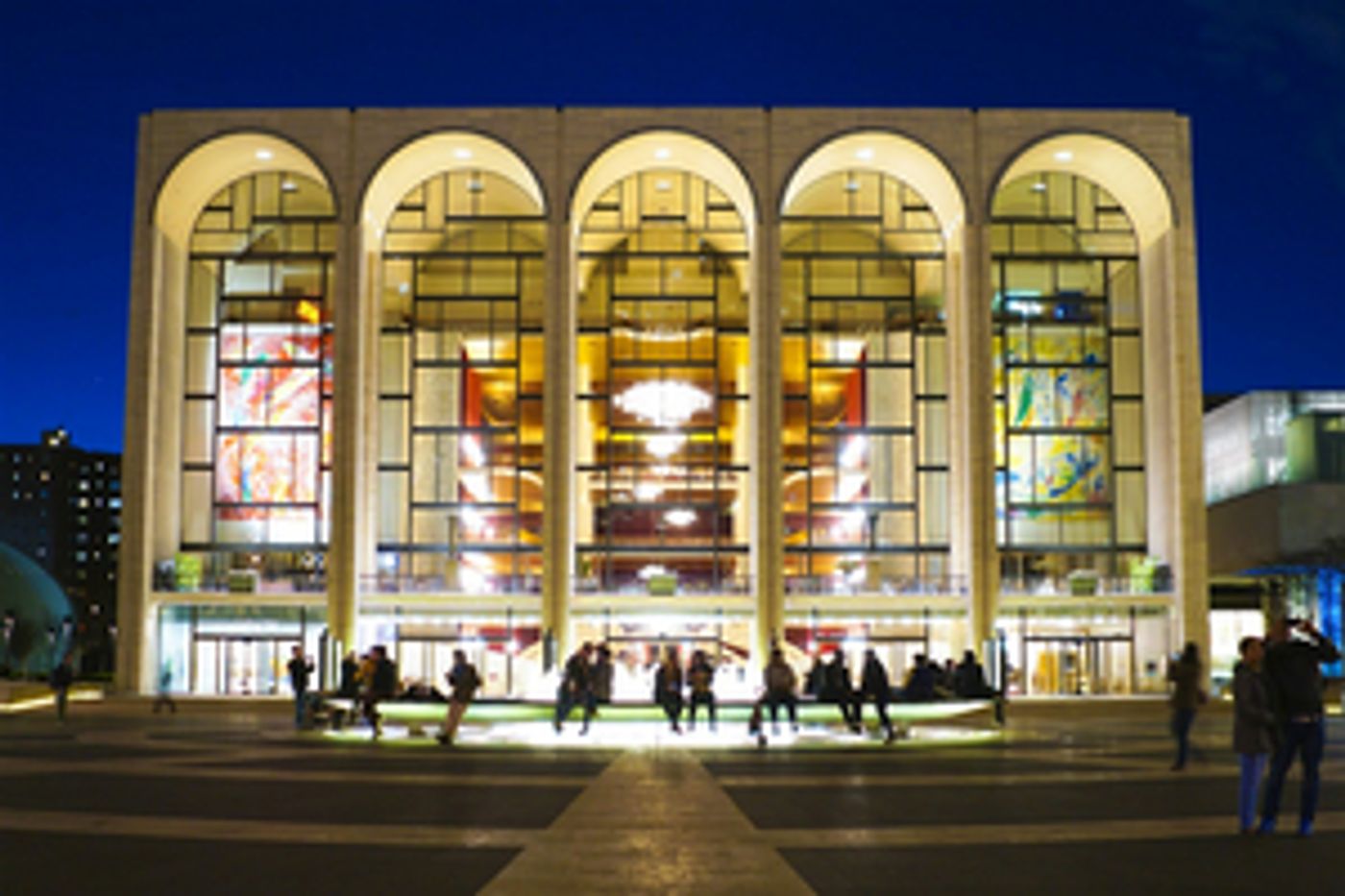Review: The Met Welcomes the Next Generation at Its Laffont Competition
The Grand Finals Concert Crowns This Year’s Winners to an Appreciative Audience

Dominique Laffont Competition's Grand Finals Concert
While there's always a great deal of talk about where the next generation of operagoers is coming from, there's much less hand-wringing about the sources of the new generation of singers. After hearing the Eric and Dominique Laffont Competition's Grand Finals Concert at the Met on Sunday afternoon, we could plainly hear that the future of the Met roster is alive and well, and waiting to take center stage.
By the time the audience filled the auditorium on Sunday, the field of singers vying for the top prizes in the Laffont competition--previously known as the Met's National Council Auditions--had been whittled down to 10 from the more than 1200 applicants and over 900 singers who participated in 36 districts around the country and, later, 137 who made it through the regionals. By last week, there were just 20 who were named semifinalists. And then there were 10: two sopranos, three tenors, two mezzos, two baritones and a single bass-baritone.
Before the afternoon was through, host soprano Latonia Moore and special guest baritone Ryan Speedo Green (both previous winners and both currently starring at the Met in the Terence Blanchard-Michael Cristofer CHAMPION) announced the half dozen who would claim the big prizes. Were they the best? According to the judges
Every one of those was a winner from the start, with a prize of at least $10,000 to help them along with their career plans and opportunities; only six, however, would end up with another $10,000 as Grand Finals Winners, joining the ranks of many singers filling the ranks of the rosters at the Met and other major opera houses, including Renee Fleming, Nadine Sieraa, Michael Fabiano and Anthony Roth Costanzo.
The top six were:
Tenor Anthony Leon, 26, Western Region; Riverside, California
Mezzo Natalie Lewis, 24, Eastern Region; Severna, Park, Maryland
Soprano Teresa Perrotta, 27, Great Lakes Region, Orlando, Florida
Mezzo Sarah Saturnino, 29, Western Region; Grass Valley, California
Bass-baritone Christian Simmons, 28, Rocky Mountain Region; Washington, DC
Soprano Meredith Wolgemuth, 27, Eastern Region; Winter Haven, Florida
The remaining four were:
Baritone Eleomar Cuello, 28, Southeast Region; Havana Cuba
Tenor Yuntong Han, 28, Central Region; Shenyang, China
Tenor Sahel Salam, 29, Central Region; Houston, Texas
Baritone David Wolfe, 24, Upper Midwest Region; Shamokin, Pennsylvania
Were the top six the best of the lot? According to the judges--who ranged from mezzo Denise Graves (most recently heard at the Met in the Kevin Puts-Greg Pierce THE HOURS) to Melissa Wagner, Executive Director of the Met's Lindemann Young Artist Program as well as the Laffont Competition itself--yes, they were "the top." But for the rest of us, well, as they say, that's what makes horseraces.
The audience went wild for certain singers and arias, which left me scratching my head. So much is a matter of taste, clearly, including the choice of arias. I picked two of the six who I believed were definitely ready for prime time: I thought mezzo Sarah Saturnino hit a home run with both her arias--an earthy "O don fatale" from Verdi's DON CARLOS and "Amour! Viens aider ma faiblesse" (and not "Mon coeur s'ouvre a ta voix") from Saint-Saens' SAMSON ET DALILAH, while soprano Meredith Wohgemuth had me with her rapturous "Oh, quante volte, oh! Quante" from Bellini's I CAPULETTI ED I MONTECCHI and "Non disperar, chi sa?" from Handel's GIULIO CESARE. Following closely was tenor Anthony Leon, who seemed to have endless breath control in Mozart's "Il mio Tesoro" from DON GIOVANNI and Fenton's "Dal labbro il canto" from Verdi's FALSTAFF.
There were lots of other standouts among the performances--mezzo Natalie Lewis's "Acerba volutta, dolce tortura" from Cilea's ADIRANA LECOUVREUR, soprano Teresa Perrotta's Ecco il punto, o Vitellia" from Mozart's CLEMENZA DI TITO and baritone Christian Simmons's "Vyes' tabor spit" from Rachmaninoff's ALEKO, among them.
But my vote for the day's gutsiest choice was not among the "winners." It was baritone David Wolfe's "Captain Ahab? I must speak to you. Sir?" from Jake Heggie's MOBY DICK--the only work on the program that came from the 20th century and I thought he did an outstanding job of it, with excellent diction to boot. Considering the commitment of the Met to contemporary works for next season, it was disappointing for me to see such a dearth of more modern music among the competitors.
Speaking of more modern works, there was Latonia Moore, who's been tearing up the Met stage in Terence Blanchard's CHAMPION, as Emile Griffith's mother. While she didn't pick something from the 21st century for her performance during the judges' deliberations, she chose something that (at least for the audience) was unexpected: "Tatyana's Letter Song" from Tchaikovsky's EUGENE ONEGIN.
It was a delightful surprise and the Met orchestra, under the very solemnly capable Michele Gamba, which had spent the previous hours turning on a dime with showpiece after showpiece for the singers, once again showed its versatility with Tchaikovsky--one of the few Russians welcome on stage these days at the Met.
Reader Reviews
Videos

